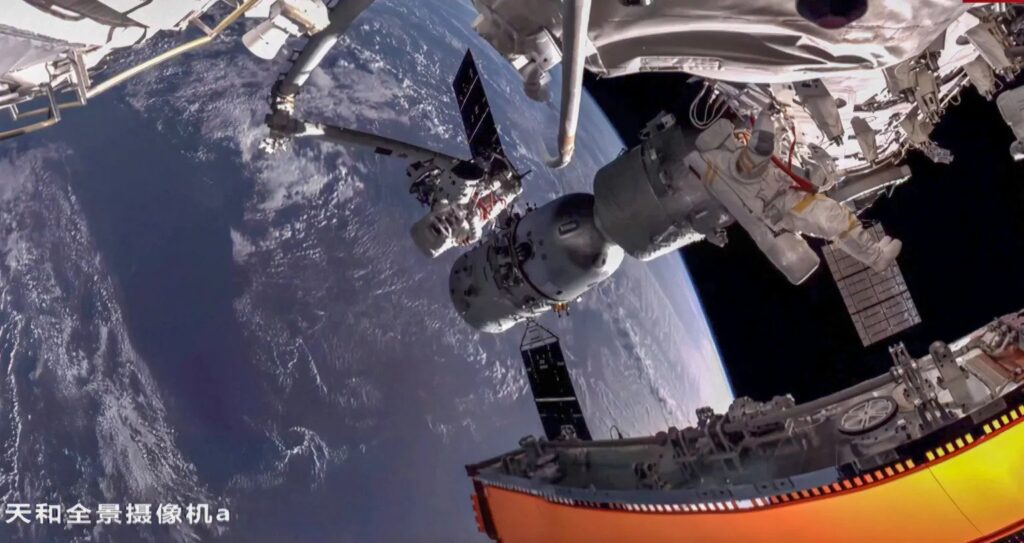The involvement of civilian astronauts in expeditions to the Tiangong space station may change how China’s space program is perceived both within the country and internationally. It could become much more open to international cooperation and commercial companies.

Chinese military yield space to civilians.
The intention of China’s People’s Liberation Army (PLA) to allow civilian astronauts and non-governmental enterprises (NGOs) to participate in the Chinese Space Station (CSS) “is a trend that will likely change the global image of China’s space program,” according to a report from the Chinese Academy of Aerospace Research (CASI) Department, published on August 28.
It’s not a secret that China’s space program has been perceived as military both within and outside the country from the very beginning. All taikonauts were officers of the PLA, and every launch was seen by Western analysts as another attempt to militarize space. However, as early as 2016, Chinese officials announced that civilian astronauts would participate in flights.
However, this promise was only realized in 2023 when engineer Gui Haichao became the first civilian to be allowed into space as part of the crew of the Shenzhou-16 spacecraft.
The Tiangong Station and International Collaboration
The core module of the Tiangong station was sent into space in 2021. However, it took China another 1.5 years and 10 manned and unmanned launches to complete it. During construction, it became apparent that the station was too large for military use alone.
A year ago, a wide-ranging scientific program to be carried out on Tiangong was announced. Then China admitted that it would be ready to host space tourists in a few years. Now there is talk of closer international cooperation in the near future.
For some time now, China has publicly stated that it is giving up its closed-door approach to space and actively seeking partners. Earlier this year, it offered the European Space Agency (ESA) to arrange a flight for one of their astronauts to Tiangong.
At that time, ESA Director-General Josef Aschbacher declined the offer, citing a lack of political and financial will to do so. However, it is quite possible that when China’s space program becomes more transparent, this issue will be resolved positively.
China’s Commercial Space Activity
Reducing the involvement of the military in China’s space program and, as a result, involving foreign partners could also signify the beginning of active commercialization of Chinese space activities. Chinese private companies have long been involved in the development of launch vehicles. However, they have not been heavily involved in on-orbit projects so far.
However, the Chinese are eager to take advantage of the benefits that involving private companies in the space program can offer. It is expected that by 2026-2030, Chinese space leaders will finalize their decisions regarding commercial partners they would like to see in their projects.
Source: spacenews.com.
